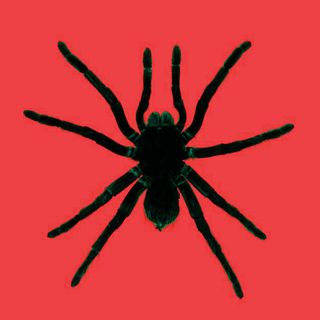The way we eat is intrinsically tied to the way we look, which is the crux of what influences eating disorders. However, the language around restrictive diets often utilizes phrases like “clean” or “pure,” which betray a fixation on health and wellness that can be fatal enough to potentially spawn a new eating disorder — orthorexia nervosa.
Orthorexia nervosawas proposed as an eating disorder back in 1997 by Dr. Steven Bratman. While it has not been accepted yet by the Diagnostic and Statistical Manual of Mental Disorders, orthorexic tendencies are recognizable and characterized by an individual developing an obsession with eating healthy only — which would involve a variety of definitions ranging from avoiding processed foods and/or cooked foods, to remaining partial to plant-based foods like fruits, grains and vegetables.
Related on The Swaddle:
The Unique Factors That Contribute to Eating Disorders in India
In his essay regarding the condition, Dr. Bratman writes, “Orthorexia begins innocently enough, as a desire to overcome chronic illness or to improve general health. But because it requires considerable willpower to adopt a diet which differs radically from the food habits of childhood and the surrounding culture, few accomplish the change gracefully. Most must resort to an iron self-discipline bolstered by a hefty sense of superiority over those who eat junk food. Over time, what they eat, how much, and the consequences of dietary indiscretion come to occupy a greater and greater proportion of the orthorexic’s day.”
An individual with orthorexia is obsessed with the purity of food — almost to the point of spirituality, according to Dr. Bratman. If they slip up and consume food not deemed ‘clean’ enough, they’re bound to punish themselves with a stricter diet. Slowly the disorder completely occupies their brain, with afflicted individuals ignoring other pursuits for the sole purpose of planning, buying and eating healthy food.
Symptoms of orthorexia run almost parallel to those of anorexia nervosa — dizziness and exhaustion, an inability to focus, losing one’s period, guilt from restricting one’s eating and compulsion to do it, and more. “Orthorexia can often lead to anorexia,” registered dietitian Christy Harrison, certified eating counselor told SELF magazine. She added, “I’ve seen many clients who get so afraid of foods they see as ‘processed’ and ‘unclean’ that they end up eating hardly anything. Then, even if the orthorexia didn’t have anything to do with weight at the beginning, they end up extremely fearful of, and resistant to, gaining weight.”
Related on The Swaddle:
The Therapy That Explores Our Deep, Dark Relationship With Food
Orthorexic tendencies can credit their inception to diet culture, or the almost cultish ways in which restrictive eating is marketed to the average person. However, an orthorexic person’s eating habits aren’t prompted by in-your-face calorie-restriction culture (detox teas, appetite suppression lollipops, etc) — their influencers are the health and wellness industries. These industries advocated clean eating, veganism, paleo, elimination and many other diets that began with good enough intentions, but were marketed with such authority and aggression that they segued into insecurity and guilt in the individual who is trying to conform but can’t.
Considering that orthorexia isn’t officially a disease yet, there’s no specific way to cure it beyond slowly repairing one’s relationship with food and practicing a balanced diet that doesn’t eliminate the tasty, greasy, oily foods seen as ‘bad.’ Rather than let wellness culture dictate our eating habits, hand over that responsibility to a good nutritionist instead.




